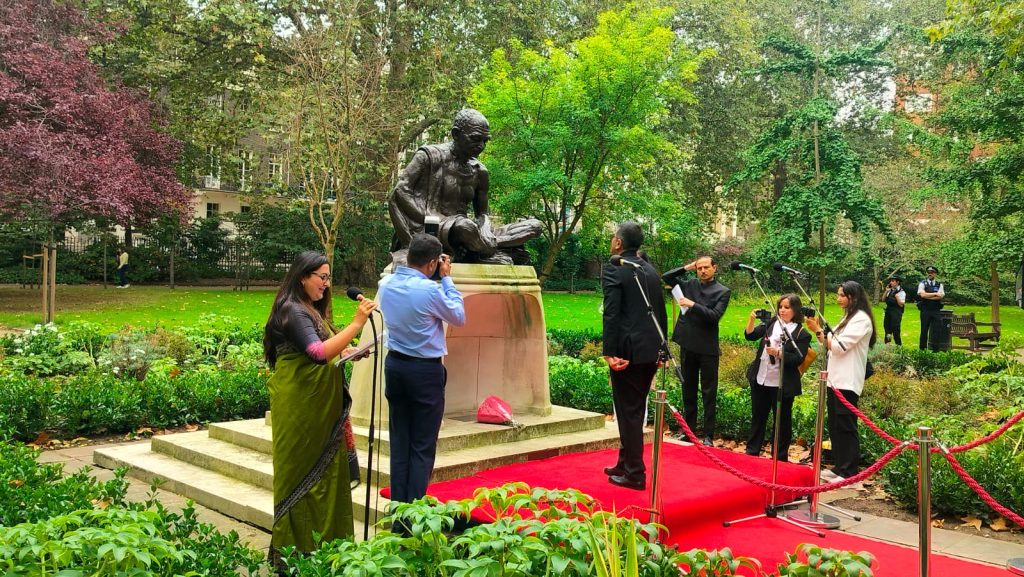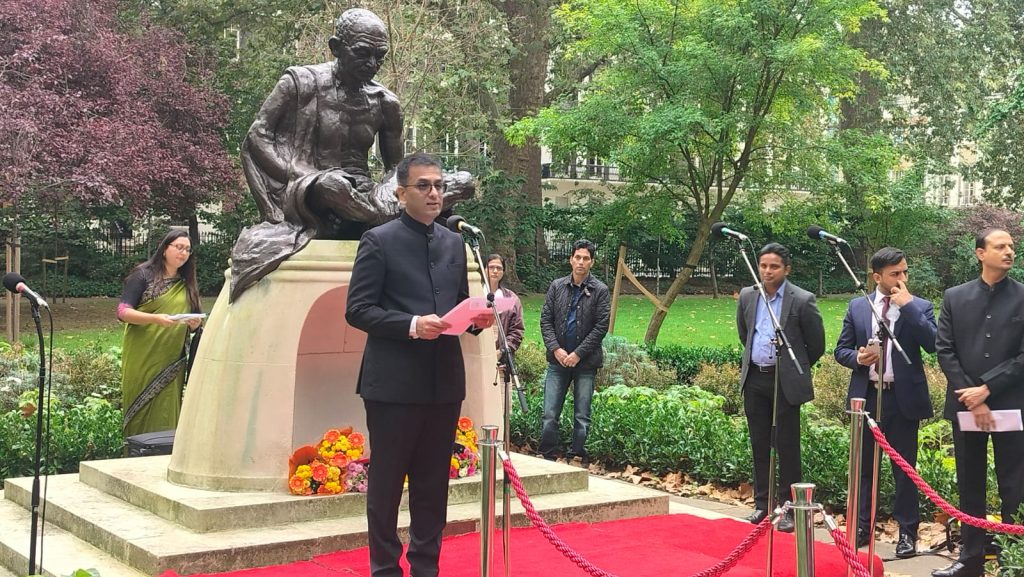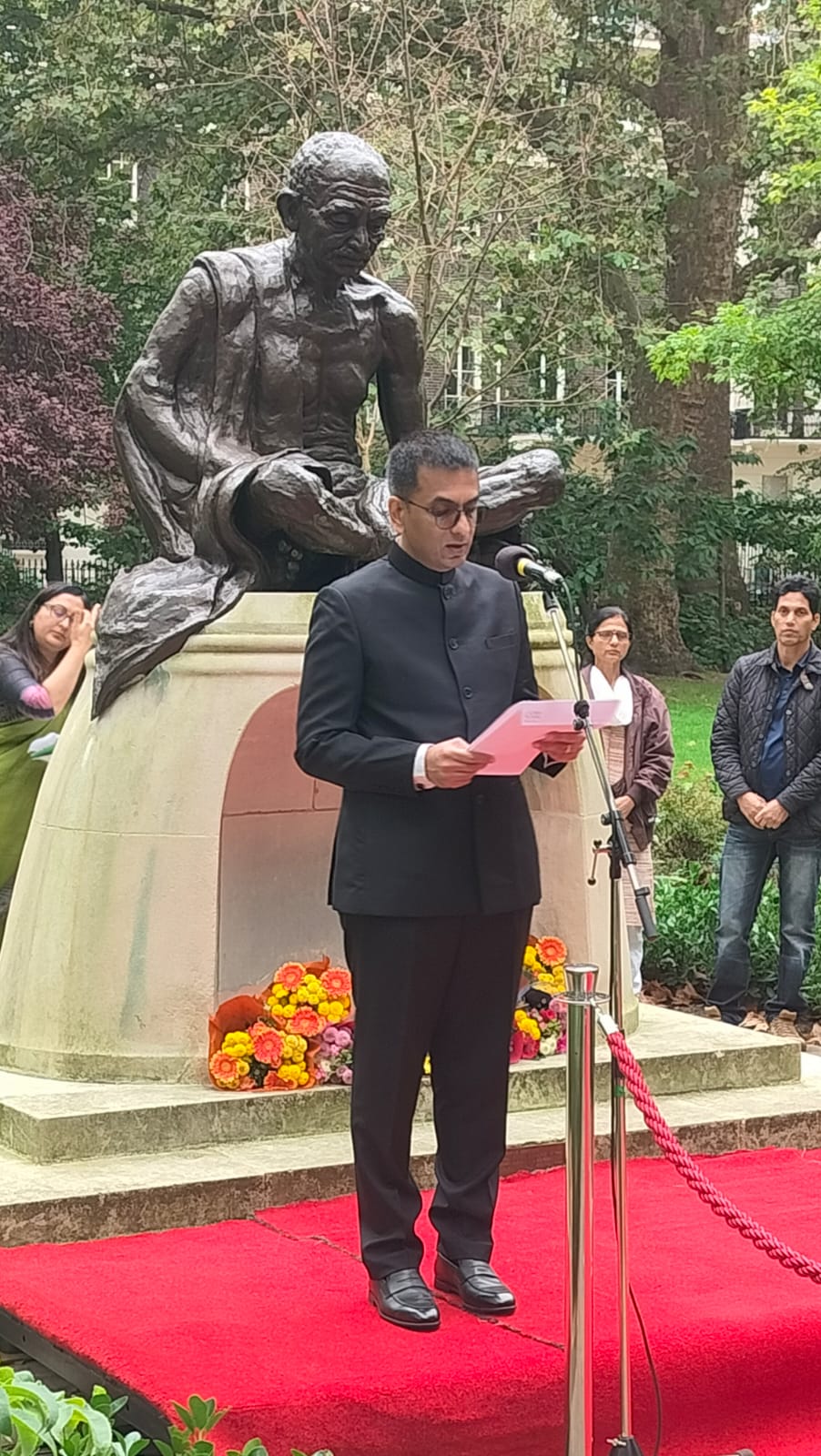Chief Justice of India D.Y. Chandrachud on Monday said the lessons given by Father of the Nation (India) Mahatma Gandhi on sustainability have proved to be the guiding light for today’s world.
Attending the celebrations of 154th birth anniversary of Mahatma Gandhi at Tavistock Square in London, the CJI said as the world faced the pressing issue of climate change and environmental challenges, Gandhi’s emphasis on living in harmony with nature and practising sustainable lifestyles provided valuable guidance to all.
In India, he was lovingly referred to as ‘Bapu,’ which meant ‘father’. In a spiritual sense, he was a guiding light for all. His ideas have persisted over time as a tool of social change, non-violent ways of life and humanism.
The CJI said Bapu’s legacy extended far beyond the boundaries of India. His ideas had inspired countless individuals and people’s movements around the world, transcending cultural and geographical barriers. His philosophy continued to influence and guide those who strive for a more equitable and just society.
Bapu’s core philosophy of non-violence and universalism were grounded on the fact that the world was one and there was a need for harmony and fraternity among the people. This idea captured the basis of moral obligations of humanism as a society. Bapu’s vision for humanity was a testament of his commitment towards peaceful co-existence for a united world, noted CJI Chandrachud.

He said in today’s globalised world, Bapu’s message of harmony and tolerance stand as a beacon of hope and wisdom. His teachings on unity and respect for diversity were timeless and held immense significance in the modern society.
As the world navigated through complex global challenges, it was essential that people preserved and promoted Bapu’s legacy. His principles of understanding each other and empathy were more important than ever. By embracing and practising these values, the world can foster a culture of inclusivity and acceptance, noted the CJI.

He said Bapu believed in the philosophy of ‘plain living’ and ‘high thinking,’ thus advocating for a lifestyle that was mindful of impact on the environment. His ideas on sustainability remind the people of the importance of contentment and responsible consumption, conservation of resources, and the need to protect the natural world for future generations.
He said the name Mahatma Gandhi stood for the principle of truth and non-violence, called for universal peace and inspired hope that the world shall become a better place than it was before.
As per the CJI, Bapu’s commitment to social justice and equality continued to inspire the people to fight against injustices. His unwavering belief in the inherent dignity and worth of every individual served as a reminder that everyone must strive for a society where everyone was treated with fairness and respect.
Bapu’s vision of a more equitable and just society gave encouragement to challenge the systems of oppression, advocate for the rights of marginalised communities, and work towards creating a society where everyone had equal opportunities and access to basic necessities.
Bapu’s life has left an indelible mark on humanity. His understanding of non-violence as the foundation for the search for truth, his vision of a united and harmonious world, and his advocacy for sustainability, social justice and equality continued to guide the humankind in its pursuit of a better future.
His belief in “Vasudev Kutumbakam”, (which mean the entire world is one family) gave power to the belief that all citizens belonged to one world, and that people must remain conscious of global issues.
He appealed to the people to re-dedicate themselves to upholding Bapu’s principles and working towards a more peaceful, just and sustainable world.


